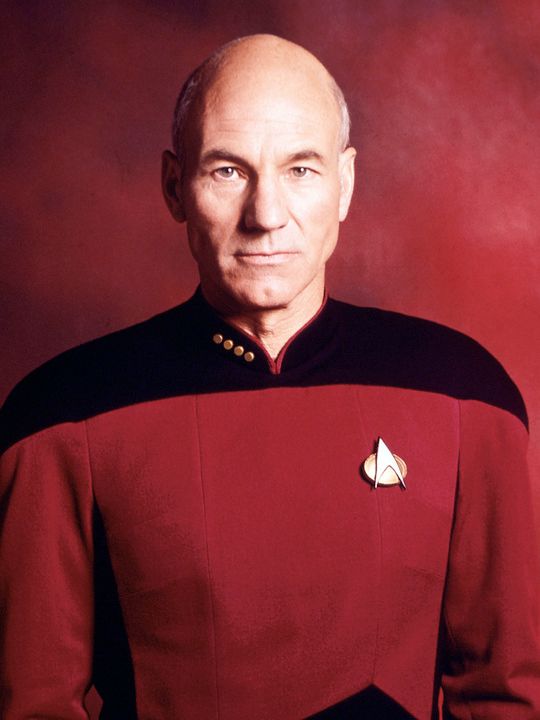I live in Boston.
Since April 15, just saying where I live has meant something other than announcing I like the Red Sox, or I drive like an aggressive jerk, or I talk with a funny accent (I don't). Boston has become synonymous with tragedy, the object of pity and political yammering. Now, weeks after those bombs went off in the middle of my city, the whole country is trying to figure out what it all means. In the middle of the chaos I didn't care what it meant; I just wanted to feel safe. So as much as I needed CNN and NPR, I needed Captain Picard.
OK, I know Star Trek is a shallow fantasy when compared to the weight of real human darkness. But myth matters. Our cultural myths tell us what to do when things get bad. If you're a Christian, you might take comfort in the parables of Jesus. If you're a science fiction geek, you might turn to your own cultural canon, the stories that explain that even though things get dark, it's always worth it to communicate, to adapt, to work together.
Americans are amazing culture exporters. Our childhood heroes migrate around the world faster than Santa Claus on the back of a Coca-Cola truck. To some, America is the land of cowboys putting a "boot in your ass." We're a culture of mavericks, self-assured heroes, rugged individuals. These are terrific qualities to have in a crisis. When Captain Kirk swaggers across the stars, or Tony Stark fells a terrorist cell with a snap of his metal-clad fingers, they're following in a grand American tradition. But that tradition isn't for me.
Americans also have a tradition of acceptance, inclusion, and compromise. It's harder to see, because it's not as sexy as watching lone gunslinger paint the town red. But you can see it when an outsider like Kal-El is raised up into Superman. You can see it when Buffy's Scooby Gang rescues her from certain death. You can see it on the latter-day Enterprises, where teamwork trumps individual glory time and time again. I recently re-watched an episode of Star Trek: The Next Generation in which Captain Picard genuinely argues that the Crystalline Entity, which has been killing thousands upon thousands of people all across the stars, has every right to exist. Although the characters may feel anger and grief, retaliation is clearly the wrong answer every time.
I wish we had more of that sentiment as more details come to light about the Boston Marathon bombers. Angry though I may be for the evil things that happened in my city, I would rather focus on the immense good that people have done in the wake of that tragedy: the emergency workers who saved lives before the ambulances ever came, the volunteers who brought comfort to the wounded, the city that remained calm and collected as police officers did their work. As another fan of cooperation once said, "Look for the helpers, you will always find people helping." Shouldn't we give just as much adulation to helpers as we do to innovators and rebels? Shouldn't kids aspire to be team players as much as they aspire to be heroes of their own life stories?
This week, I'm going to honor the people who broker peace and encourage calm. I'm going to go back through the back-catalog of American myth that encourages helpfulness and self-sacrifice. For all that we profess to love that cowboy swagger, when it comes to crisis the American people are pretty darn good at working together.


